Following a number of disappointing blockbusters in May, there are a few promising ones this month (as glimpsed in our honorable mentions below), but it feels like we’ll have to wait until July for a trio of heavy hitters. In the meantime, June brings an eclectic mix of sturdy debuts, auteur-driven offerings, and accomplished documentaries.
15. Shadow Kingdom (Alma Har’el; June 6)
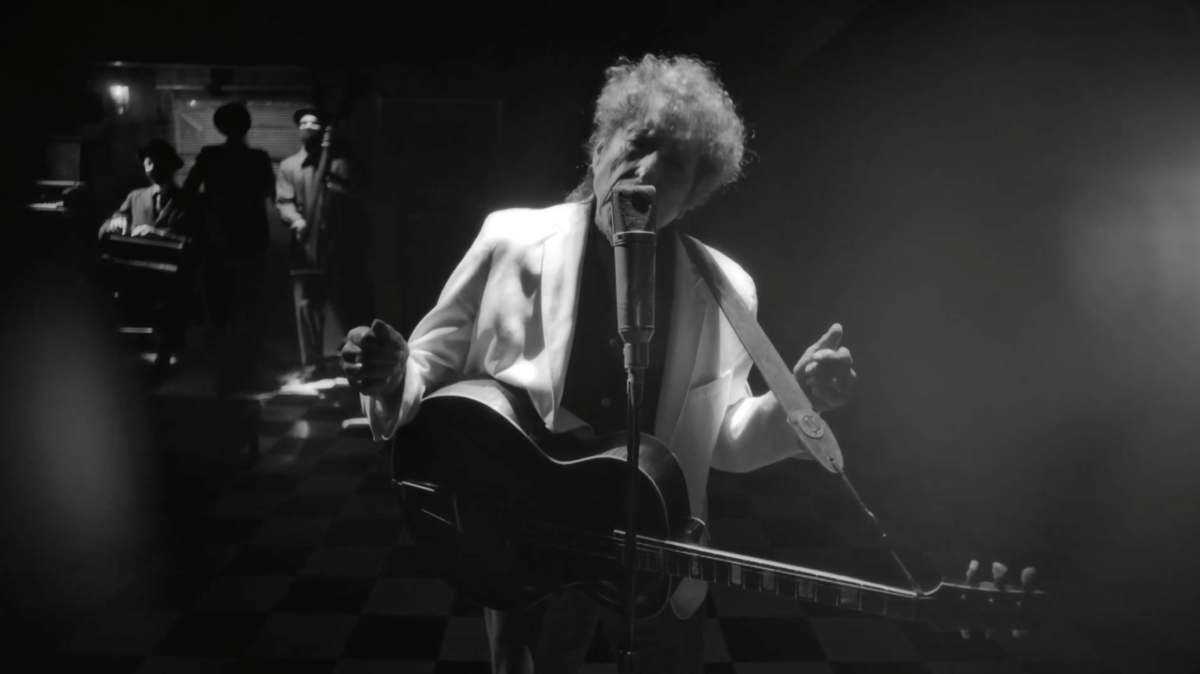
Technically released in limited capacity a couple years ago, the Bob Dylan concert film Shadow Kingdom is now getting proper distribution. As Nick Newman said in our summer movie preview, “Your local Bob Dylan obsessive has surely mentioned Shadow Kingdom, the 2021 concert film that saw him rework an assortment of earlier songs––some established (‘Forever Young,’ ‘It’s All Over Now, Baby Blue’), some deeper in the back catalogue (‘The Wicked Messenger,’ ‘What Was It You Wanted’). One case (‘To Be Alone with You’) marked an almost-total rewrite, and courtesy the end credits (which we now know is called ‘Sierra’s Theme’) an entirely new track. A smorgasbord for Dylanologists, enough to write home for, but greater still that the film component (directed by Alma Har’el and shot by Lol Crawley) is a smoky, dark––yes, shadowy––achievement all its own. It also sat on some weird service for the short duration paying customers could even access it, seemingly left to be a fun memory from a strange summer. Event of events, then, that Shadow Kingdom will be available to rent or buy on June 6.”
14. Padre Pio (Abel Ferrara; June 2)
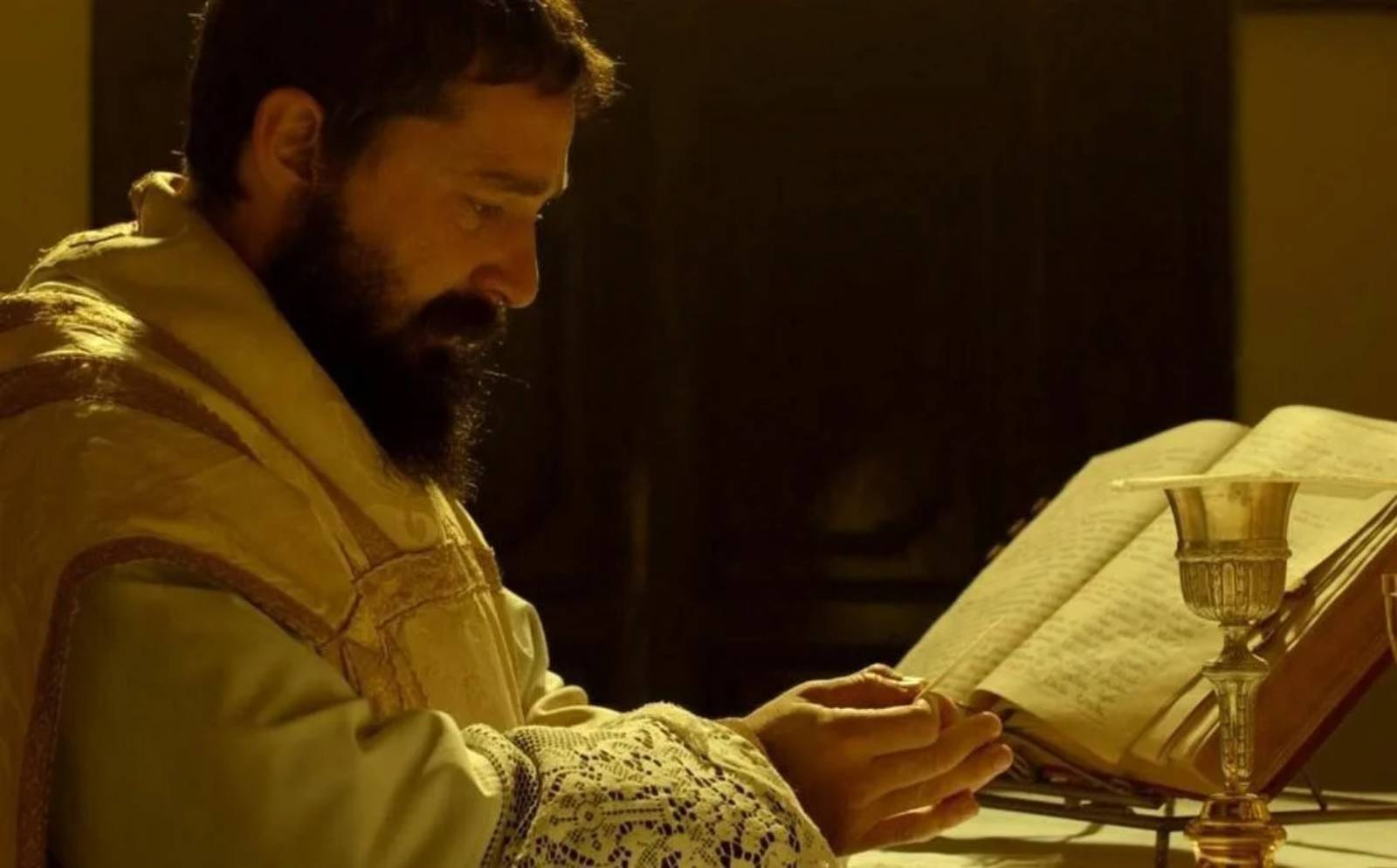
Fittingly premiering at Venice, Italy’s most famous film festival, last fall, Abel Ferrara’s Padre Pio is now coming stateside. With Shia LaBeouf playing the title figure, the story follows him as the young priest who begins his ministry at a remote monastery in Italy right after WWI has ended. David Katz said in his review, “The film is grounded in the reality of Italian life shortly after World War I, as socialist ideas gained currency amid calls for a transformation of society and the populace imagined a better way of life following their army’s traumatic return from the battlefield. The town of San Giovanni Rotondo, located in the country’s southeast, is conceived by Ferrara and first-billed co-screenwriter Maurizio Braucci (who appositely worked on Martin Eden) as a microcosm of this societal shift, where the ruling class harass their charges and dispute the results of a key national election in an apt parallel to Trumpian America.”
13. A Woman Escapes (Sofia Bohdanowicz, Blake Williams & Burak Çevik; June 9)
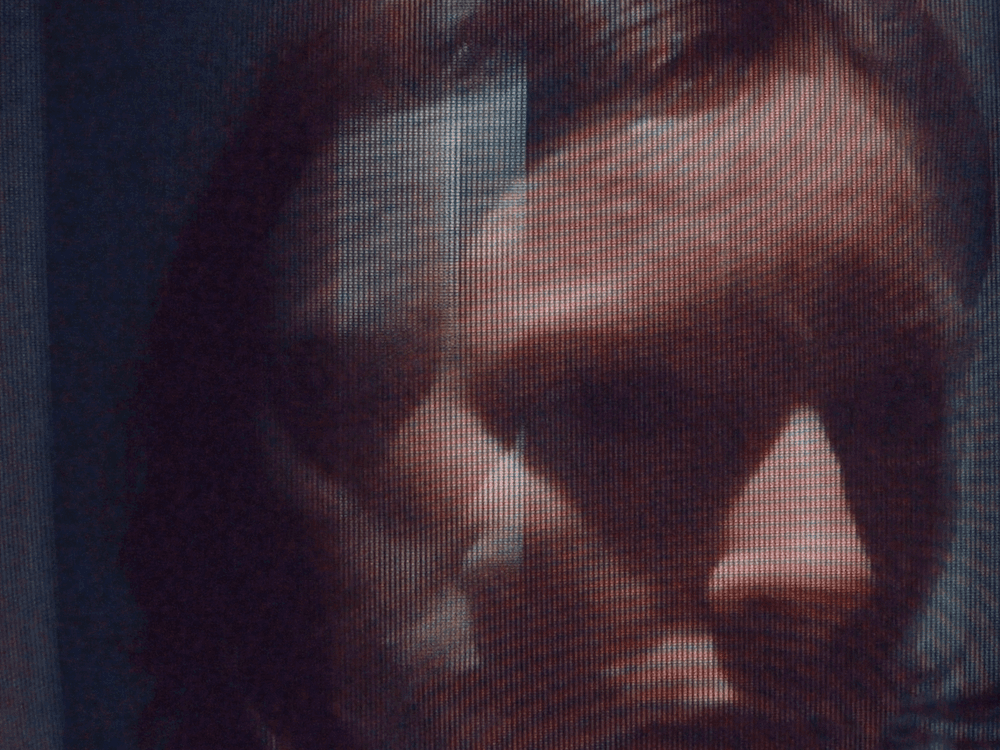
After directing some of the most interesting films on the international circuit in the last few years, Sofia Bohdanowicz, Burak Çevik, and Blake Williams have teamed on a new feature (in 3D!) which explores a woman’s emotional healing process through filmmaking exchanges. A Woman Escapes, which premiered last year at festivals, now marks the first release from Prismatic Ground. Alongside the run, Anthology Film Archives will also show Blake Williams’ other 3D works, Burak Çevik’s The Pillar of Salt and Belonging, and Sofia Bohdanowicz’s earlier collaborations with filmmaker and actress Deragh Campbell.
12. Happer’s Comet (Tyler Taormina; June 16)
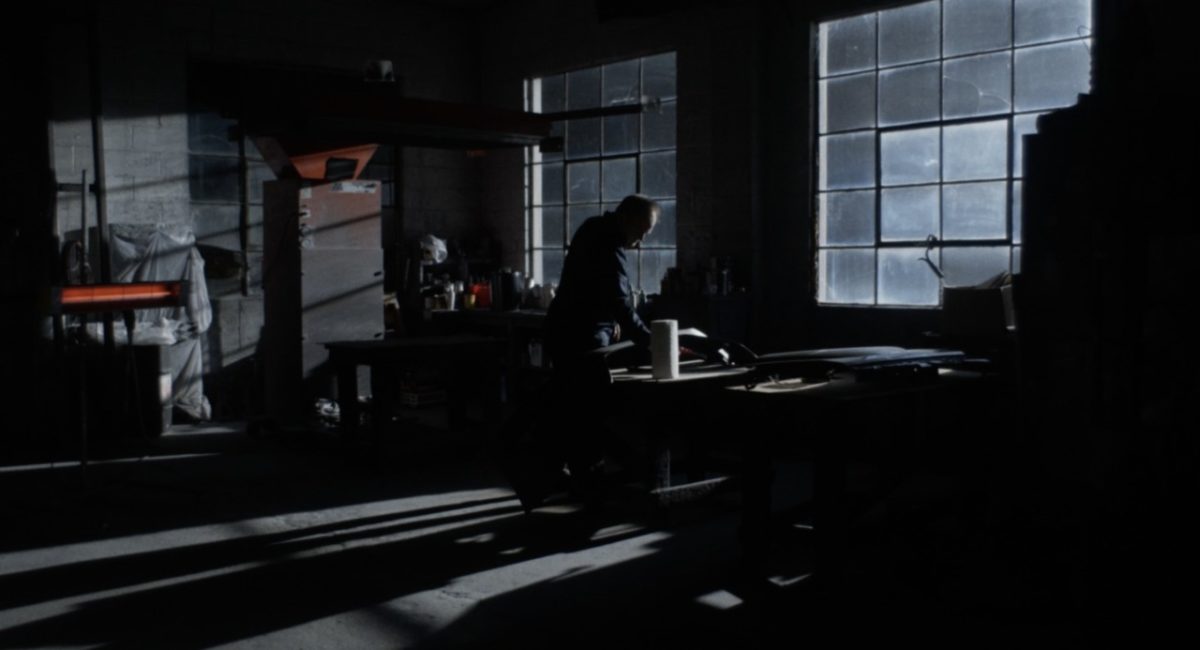
After the stellar, surreal drama Ham on Rye, Tyler Taormina returned to the festival circuit last year with Happer’s Comet, which is finally getting a release this month. Rory O’Connor said in his review, “It’s structured as a series of beautifully shot vignettes starring Taormina’s family members and neighbors, shot around their homes and places of work. What’s remarkable about Happer’s Comet is what sense of unison Taormina achieves, the resulting cumulative mood that is created. Each setting, and almost each person, appear disparate and isolated (in only a couple sequences are we shown more than one figure onscreen) but they feel intrinsically connected, like a network of mycelium. (As the end credits confirm, with some affection, it was made “in lockdown with a crew of two and a cast of my hometown community.”)”
11. Blue Jean (Georgia Oakley; June 9)
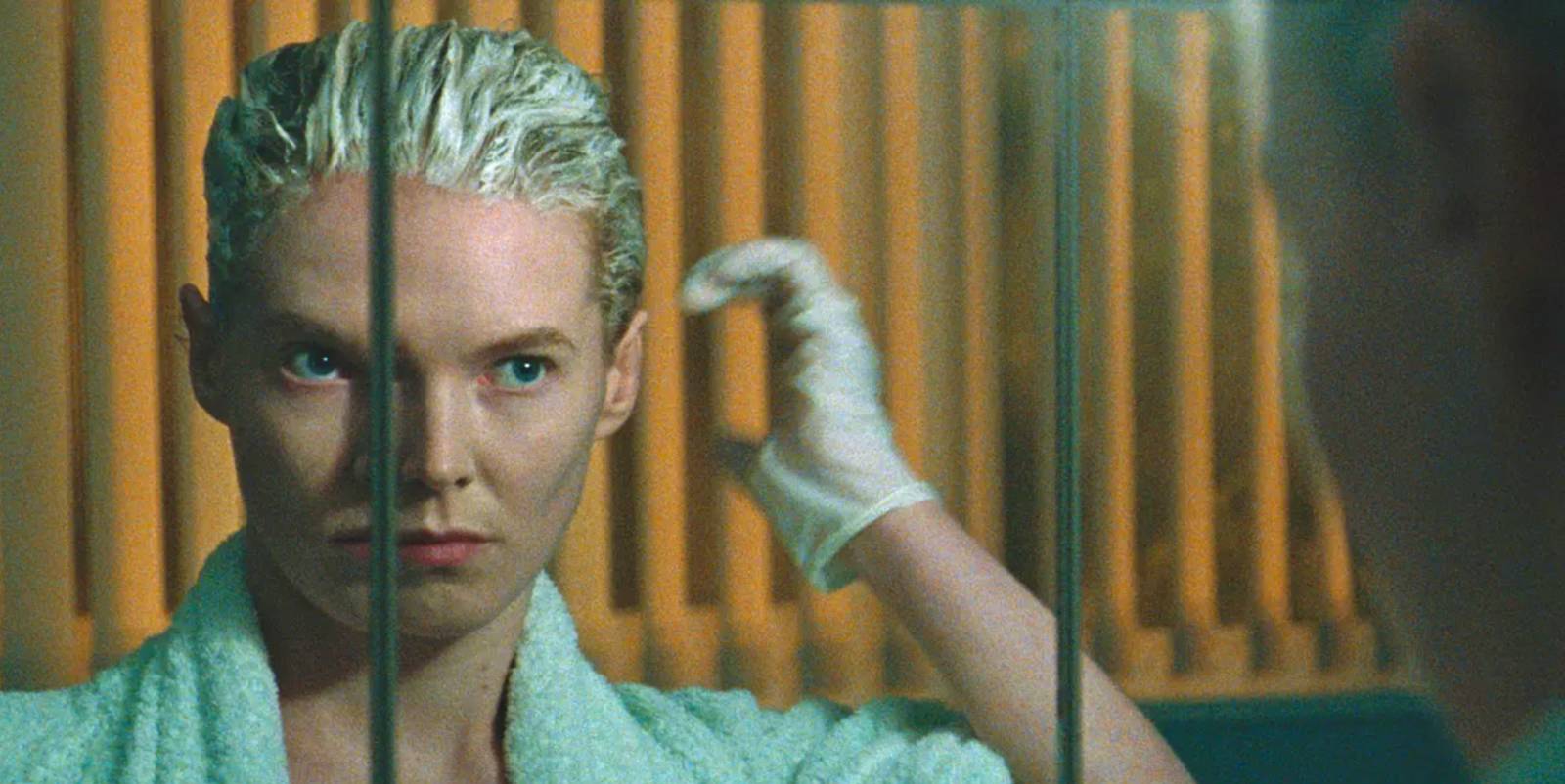
A BAFTA nominee, winner of both the Venice Film Festival’s People’s Choice Award and a quartet of British Independent Film Awards, Georgia Oakley’s directorial debut Blue Jean is finally arriving stateside this June. Leonardo Goi said in his review, “Camouflaging—its costs and consequences—is at the cornerstone of Oakley’s frank, often quite gripping feature debut. If Blue Jean does not debunk or reinvent new tropes in its tale of self-acceptance (does it have to, anyway?) it still radiates a rebellious energy, courtesy McEwen’s riveting performance and Oakley’s ability to never make her outcasts feel like lessons.”
10. Squaring the Circle (The Story of Hipgnosis) (Anton Corbijn; June 7)
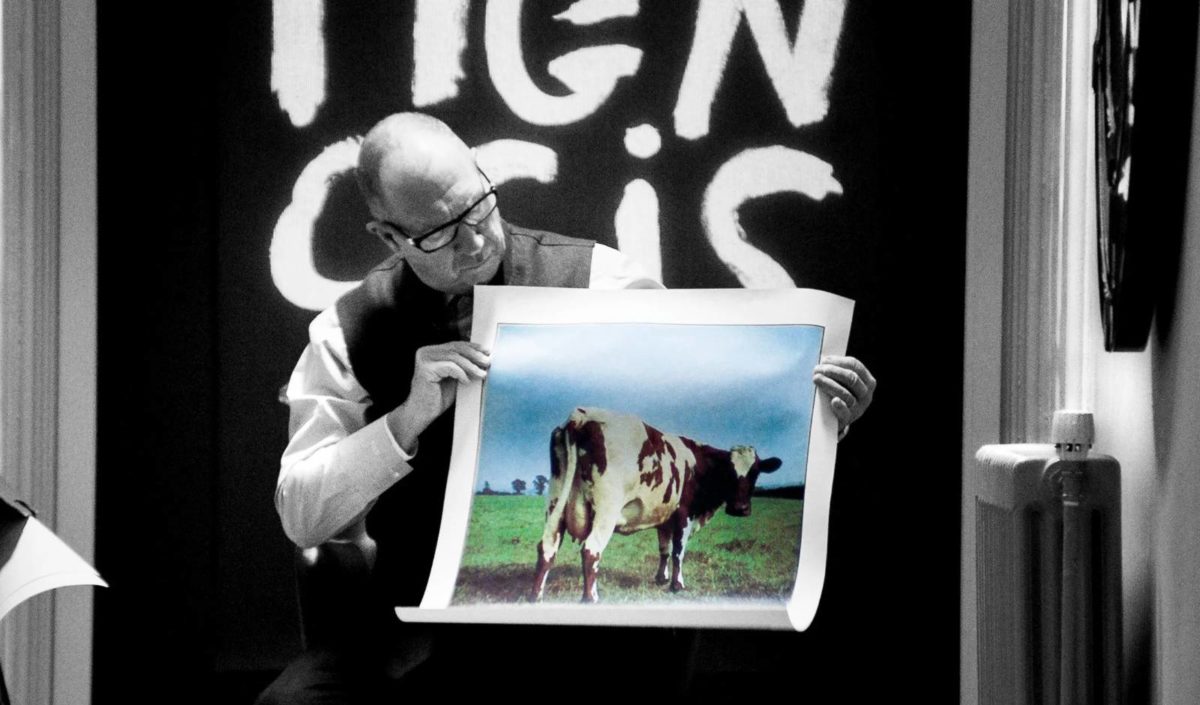
You are likely familiar with the photographs and narrative films of Anton Corbijn (Control, The American, A Most Wanted Man), but now the artist has directed his first-ever documentary on a subject he knows well. Squaring the Circle, a Sundance and Telluride selection, entertainingly examines the work of Storm Thorgerson and Aubrey “Po” Powell, the creative geniuses behind the iconic album art design studio, Hipgnosis. Featuring brand-new interviews with Paul McCartney, Roger Waters, Jimmy Page, Robert Plant, Peter Gabriel, Noel Gallagher, and more, the documentary charts how the pair were responsible for some of the most recognizable album covers of all-time, including Pink Floyd’s Dark Side of the Moon, Paul McCartney and Wings’ Band on the Run, and Led Zeppelin’s Houses of the Holy, all three of which celebrate their 50th anniversaries this year.
9. Lynch/Oz (Alexandre O. Philippe; June 2)

“The Wizard of Oz is a film with very great power… And it’s to be expected that it has stayed with us for the past several years and that we find its echoes in our films for such a long time after. The Wizard of Oz is like a dream and it has immense emotional power,” David Lynch once said. “There’s a certain amount of fear in that picture, as well as things to dream about. So it seems truthful in some way.” Indeed, from the overt references (Wild at Heart) to the more subtextual (see: every other David Lynch movie), Victor Fleming’s 1939 landmark has been a constant wellspring of influence for the legendary director. Yet even with such source of inspiration, Lynch’s films play as singular creations, every frame infused with a thrillingly unique voice. With his new essay documentary, Alexandre O. Philippe entertainingly explores the vast range of connections between Lynch and Oz through the perspectives of Karyn Kusama, John Waters, David Lowery, Rodney Ascher, Amy Nicholson, and Justin Benson & Aaron Moorhead. Read my interview with the director.
8. Brooklyn 45 (Ted Geoghegan; June 9)
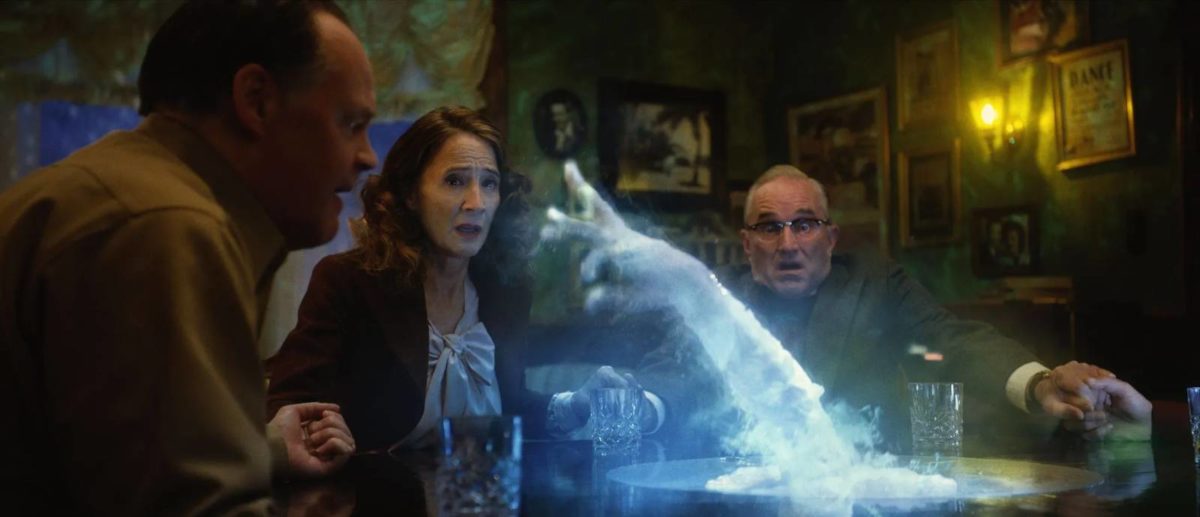
One of the highlights from this year’s SXSW, Ted Geoghegan’s Brooklyn 45 follows five military veterans who gather in the ornate parlor of a Brooklyn brownstone. Jake Kring-Schriefels said in his review, “It’s supposed to be a nostalgic, supportive night. On December 27, 1945, five military veterans and friends from childhood gather inside a Brooklyn brownstone to reminisce about old times, celebrate the end of World War II, and comfort a grieving host whose wife has recently passed. But what starts with sentimental banter and a strong whiskey buzz quickly spirals into an unexpected séance that conjures the paranormal, sparks some paranoia, and builds to a possession that seems hell-bent on staining the wood-paneled parlor with as much blood as possible. That’s the fun, gory, alarming premise behind Brooklyn 45, Ted Geoghegan’s third feature film that asks a lot of heavy questions in-between its abrupt moments of splatter.”
7. Desperate Souls, Dark City and the Legend of Midnight Cowboy (Nancy Buirski; June 23)
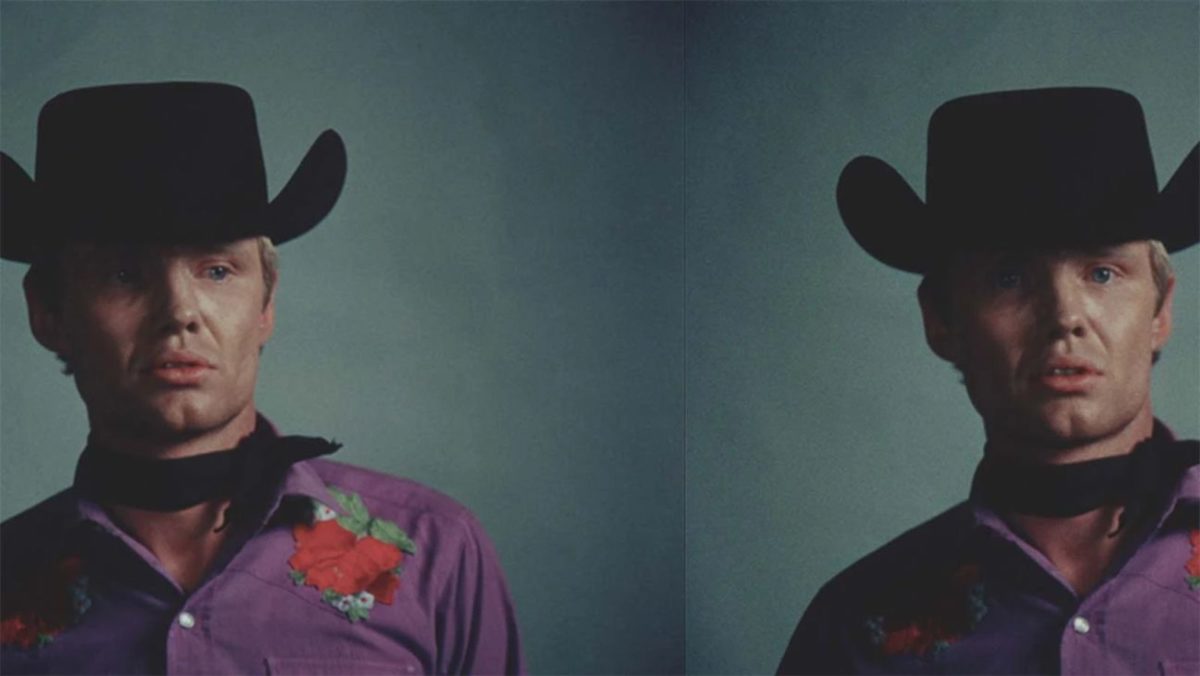
Dive deeper into one of the great films of the ’60s with a new documentary by the accomplished Nancy Buirski. Logan Kenny said in our summer movie preview, “Desperate Souls, Dark City and the Legend of Midnight Cowboy professes to be something more than just a film about the making of Midnight Cowboy. Nancy Buirski’s latest work is an extremely ambitious documentary that attempts to navigate the impact and cultural presence of the legendary film while also exploring the history of queer cinema, the death of the western, and the counter-culture of the ’60s transforming into the nihilism of the 1970s. It packs a lot of information and perspectives into 101 minutes and while it doesn’t explore each subject with the perfect amount of depth, its sheer enthusiasm for the film and the cultural period is infectious. By the end there’s a sense of sadness that its shaggy pleasures are now in the past. A worthwhile endeavor for anyone interested in 1960s cinema and one of its greatest offerings.”
6. Falcon Lake (Charlotte Le Bon; June 2)
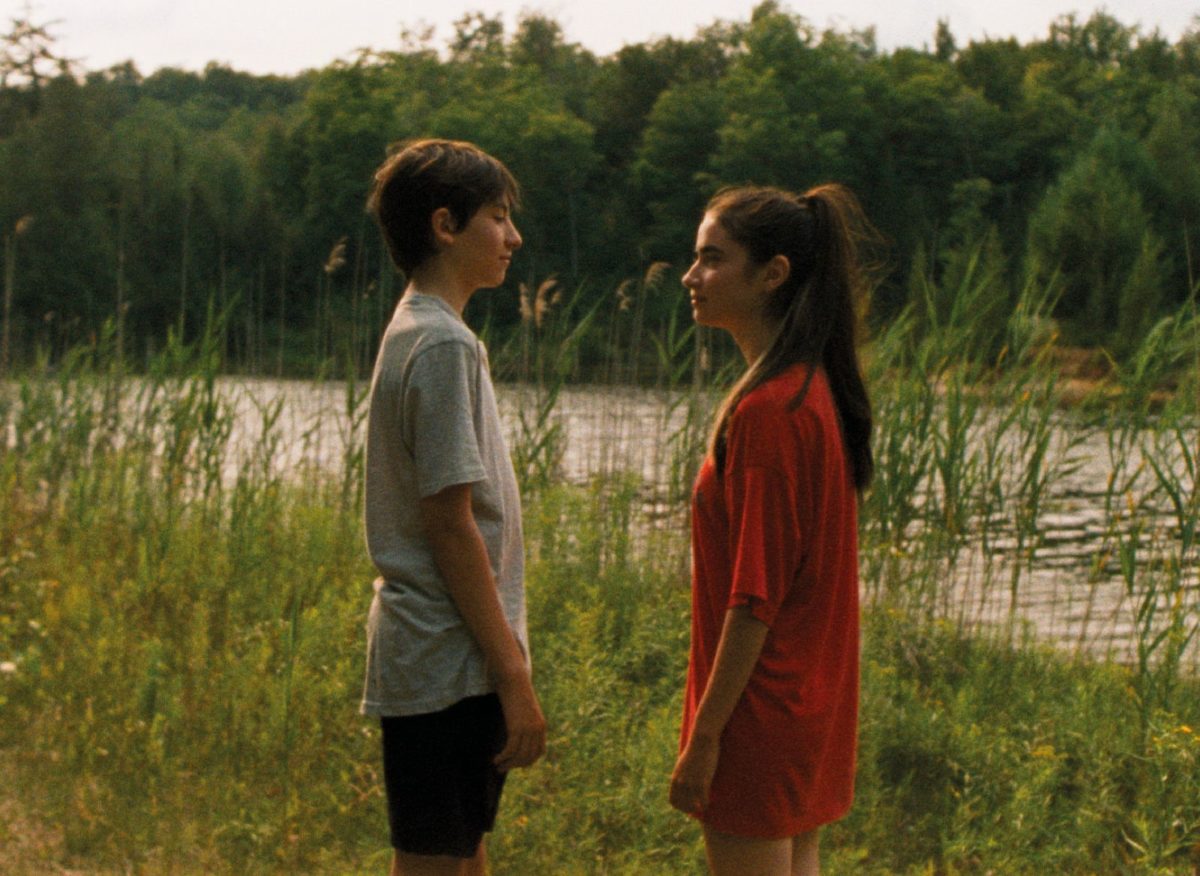
Whether it’s Michel Gondry’s Mood Indigo, Robert Zemeckis’ The Walk, The Hundred-Foot Journey, Anthropoid, The Promise, or last year’s Fresh, chances are you’ve seen Charlotte Le Bon’s work as an actor. She’s now helmed her feature with the haunting, beautiful genre-melder Falcon Lake. Alistair Ryder said in his review, “The directorial debut of Canadian actress Charlotte Le Bon is an unusual, immediately arresting combination, grounding its deeply sincere account of first love within the realm of gothic horror––here the urban myth of a girl who drowned in the nearby lake many summers prior.”
5. The Passengers of the Night (Mikhaël Hers; June 30)
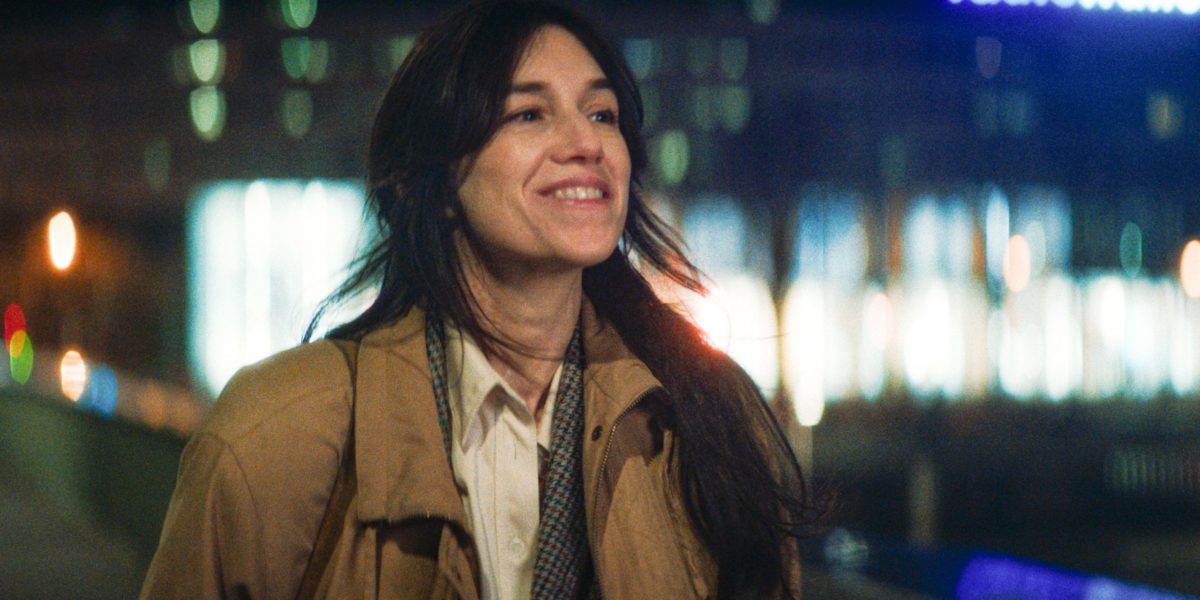
As we near the halfway point of the year, one of the great performances of 2023 thus far comes courtesy Charlotte Gainsbourg in Mikhaël Hers’ new drama The Passengers of the Night. Following a woman adrift in 1980s Paris (and even referencing one of the best films of the respective decade, Éric Rohmer’s Full Moon in Paris), the drama is carefully attuned to the emotions of everyone that graces the screen. Reeling from a divorce while balancing job prospects and a relationship with her two teenage children as well as a new teenager that enters her life, Passengers exudes a mature poeticism in every scene.
4. Past Lives (Celine Song; June 2)
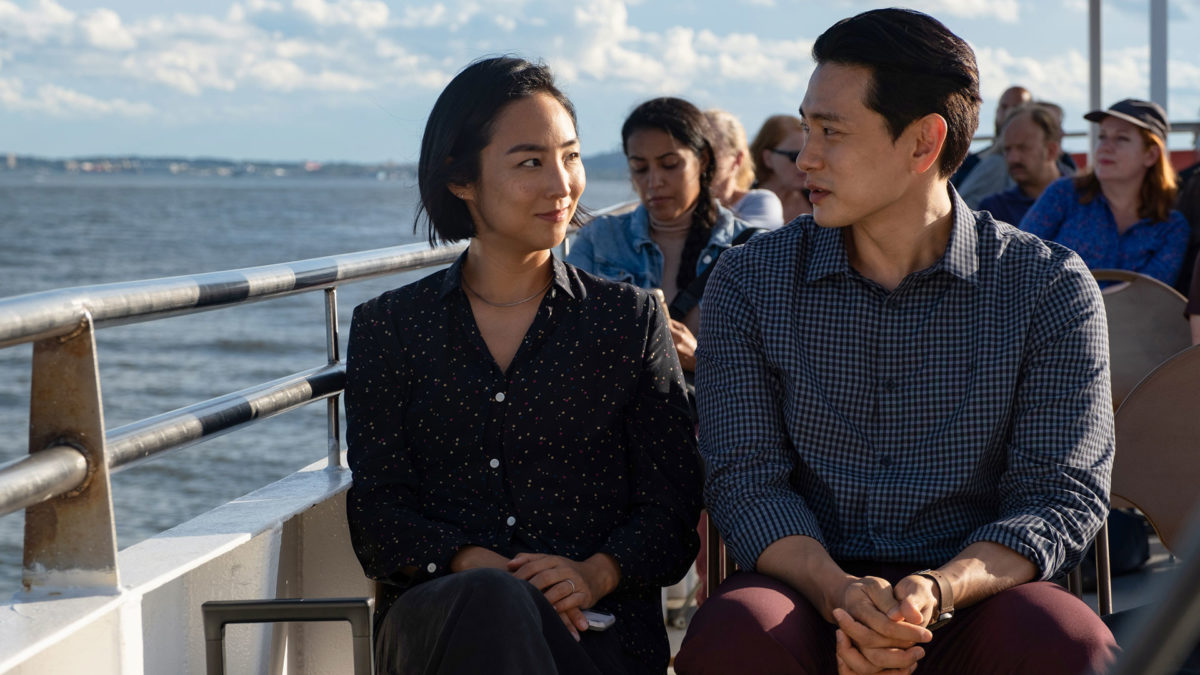
Whether miniscule or major, the millions of decisions we make form the winding path of our lives. Specific reasons for taking certain forks in the road can often be lost to the sea of time, swelling back up only as our memory allows. A triptych not-quite-romance crossing nearly a quarter-century, playwright Celine Song’s directorial debut Past Lives examines such universal experience with keen cultural specificity, telling the story of childhood friends who twice reconnect later in life. It’s a warm, patient film culminating in a quietly powerful, reflective finale, though its sum is greater than its parts when the first two sections register a touch underdeveloped. Continue reading my full review.
3. Scarlet (Pietro Marcello; June 9)
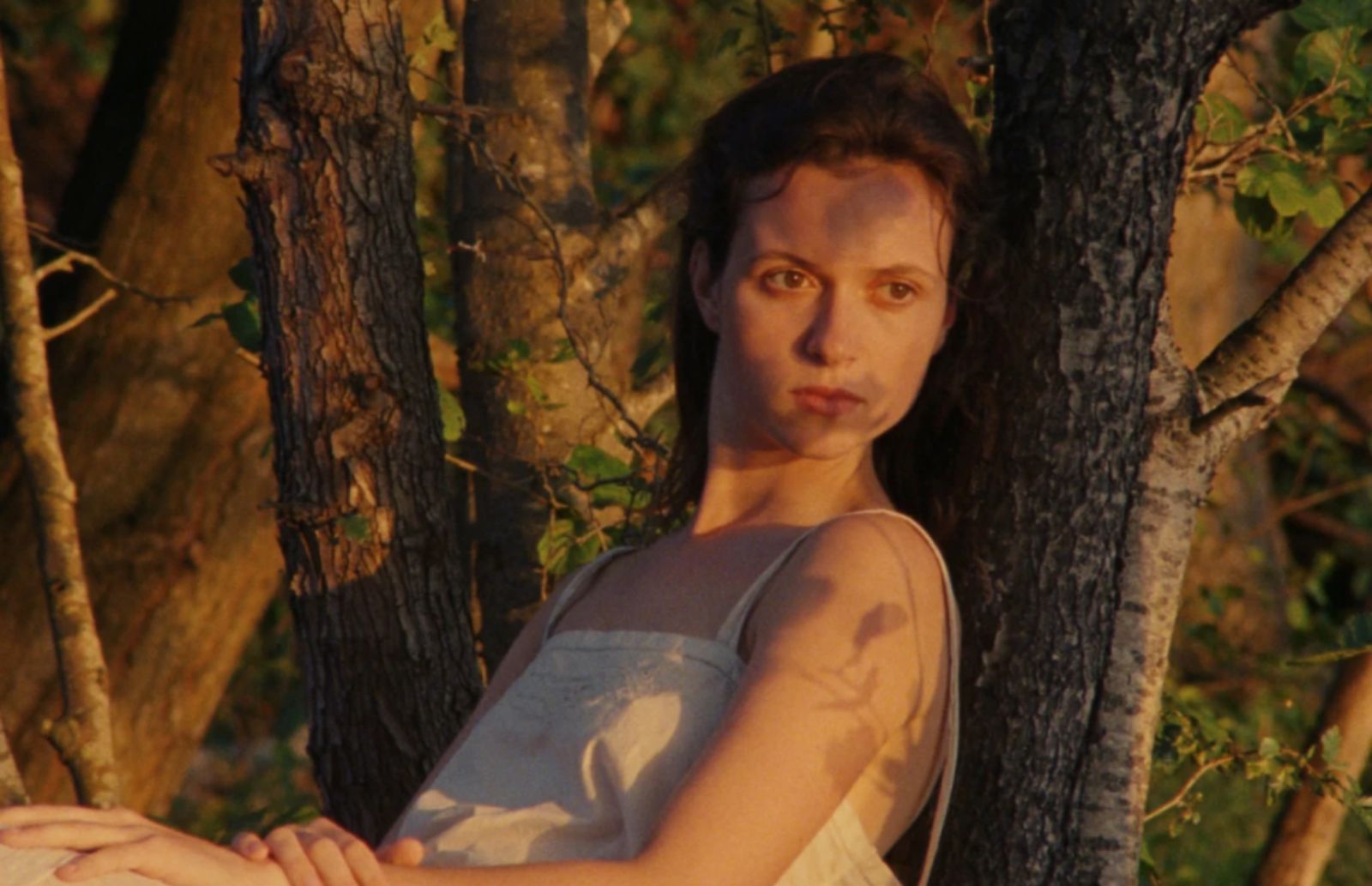
After Martin Eden had the unfortunate timing of being released digitally in the pandemic, the big-screen-demanding vision of Pietro Marcello can now be seen in its proper glory with his enchanting new fable Scarlet. David Katz said in his review, “In his previous film Martin Eden, and now with Scarlet, Pietro Marcello has found a novel way to depict artistic striving, closely tying it with the concept of labor. It’s also something that runs through Jim Jarmusch’s Paterson, about the poetry-penning bus driver of the same name: both filmmakers have helped demystify our idea of the artist as a potential ‘great man of history’ and the deification often accorded them. The would-be literary maven of Martin Eden and two artist-craftsmen of Scarlet are engaged instead in a noble struggle, a bit like the eternal workers’ struggle of Marcello’s other chief interest: that of leftist political thought.”
2. Revoir Paris (Alice Winocour; June 23)
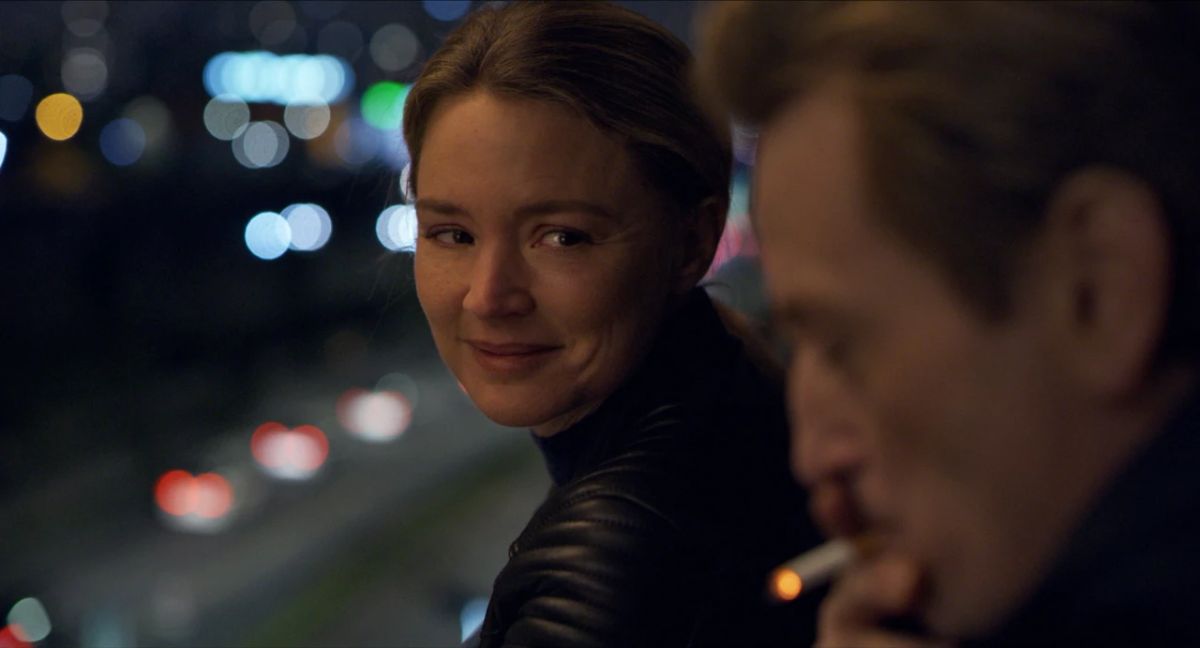
While she had been working for two decades, Virginie Efira received much-deserved wider acclaim leading Benedetta and Sibyl a few years back. She’s back this year with a pair of staggeringly great performances in Rebecca Zlotowski’s Other People’s Children and Alice Winocour’s Paris Memories. The latter, for which Efira earned the César for Best Actress, follows her character trying to pick up the pieces of her life after experiencing a terrorist attack in Paris. Also starring Pacifiction‘s Benoît Magimel and Claire Denis regular Grégoire Colin, the drama is another example of Winocour’s mastery for immersing her audience in the headspace of her character with stellar sound design and precise cinematography.
1. Asteroid City (Wes Anderson; June 16)
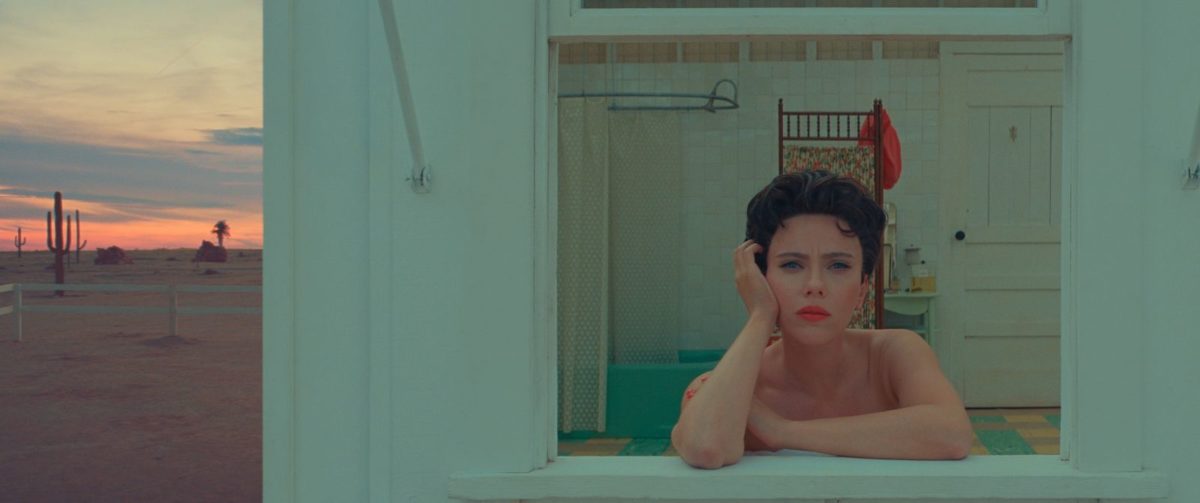
Expanding his formal dexterity in fascinating ways with The French Dispatch, Wes Anderson’s follow-up Asteroid City is another pleasurable, increasingly rare example of witnessing a director with complete artistic command breaking conventions of structure and storytelling. As Luke Hicks said in his Cannes review, “The color is somehow both soothing and electrifying––the milkiest of pastels with a Mesa turquoise gauze over it all. The sky is a piercing aqua blue, the jagged plateaus bastions of red rock around the saloon-sized town in an otherwise vast, sparsely cacti-dotted desert with the occasional perfect mushroom plume of nuclear testing visible in the distance. I suppose it’s also worth mentioning that there’s a giant hole in the ground where a meteor once struck.”
More to See
- Spider-Man: Across the Spider-Verse (June 2)
- Topology of Sirens (June 5)
- After Sherman (June 2)
- Aloners (June 9)
- Users (June 9)
- Persian Lessons (June 9)
- Nobody’s Hero (June 16)
- The Stroll (June 21)
- No Hard Feelings (June 23)
- Indiana Jones and the Dial of Destiny (June 30)
